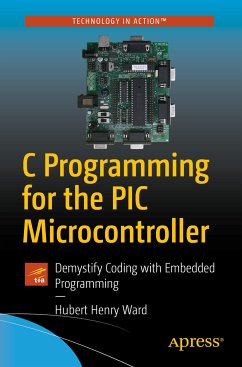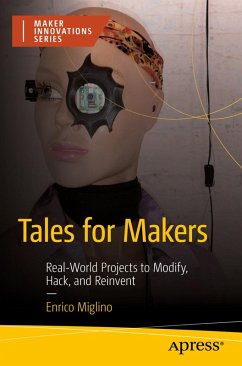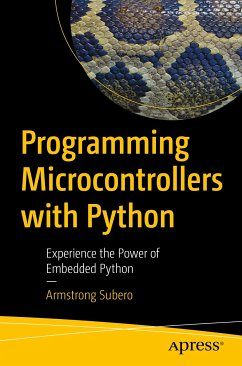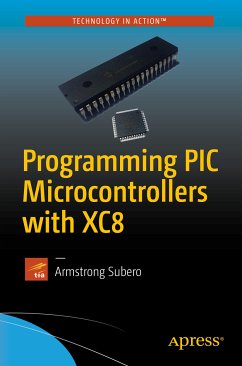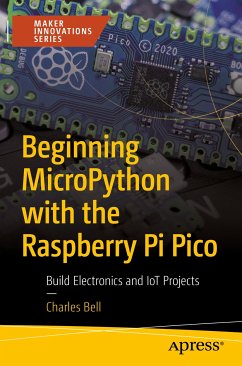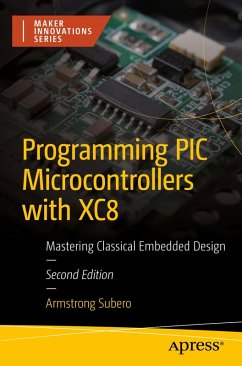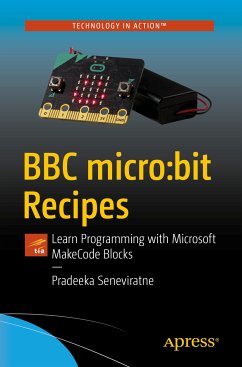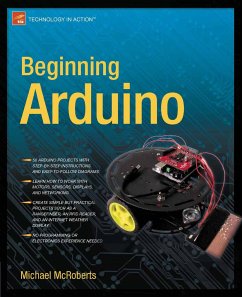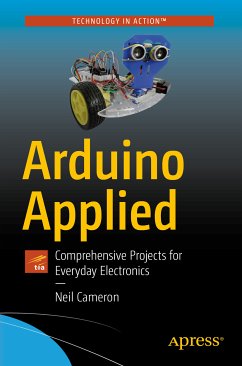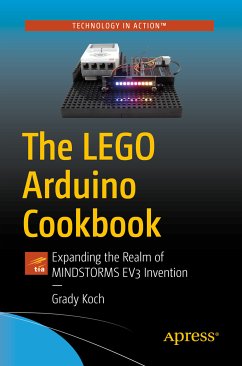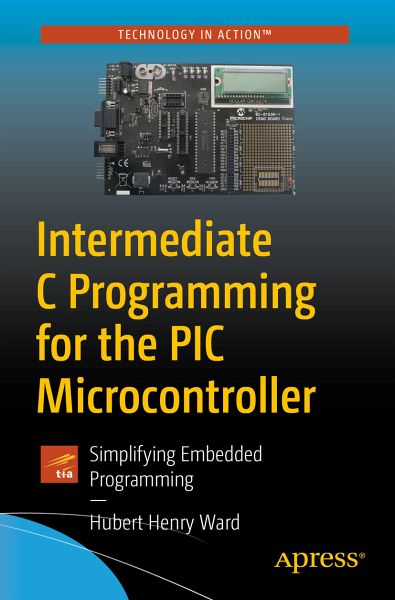
Intermediate C Programming for the PIC Microcontroller (eBook, PDF)
Simplifying Embedded Programming
Versandkostenfrei!
Sofort per Download lieferbar
47,95 €
inkl. MwSt.
Weitere Ausgaben:

PAYBACK Punkte
24 °P sammeln!
Delve into the exciting world of embedded programming with PIC microcontrollers in C. The key to learning how to program is to understand how the code works - and that is what you'll learn here.Following C Programming for the PIC Microcontroller, this book continues exploring the coding required to control the PIC microcontroller and can be used as a standalone single reference, or paired with the previous title to enhance your programming skills. You'll see how to control the position of a servo motor and use the compare aspect of the CCP module to create a square wave with varying frequency....
Delve into the exciting world of embedded programming with PIC microcontrollers in C. The key to learning how to program is to understand how the code works - and that is what you'll learn here.
Following C Programming for the PIC Microcontroller, this book continues exploring the coding required to control the PIC microcontroller and can be used as a standalone single reference, or paired with the previous title to enhance your programming skills. You'll see how to control the position of a servo motor and use the compare aspect of the CCP module to create a square wave with varying frequency. You'll also work with the capture aspect of the CCP to determine the frequency of a signal inputted to the PIC and use external and internal interrupts.
This book breaks down the programs with line-by-line analysis to give you a deep understanding of the code. After reading it you'll be able to use all three aspects of the Capture, Compare and PWM module; work with different types of interrupts; create useful projects with the 7 segment display; and use the LCD and push button keyboard.
What You'll Learn
- Create a small musical keyboard with the PIC
- Manage a stepper motor with the PIC
- Use the main features of the MPLABX IDE
Interface the PIC to the real worldDesign and create useful programs based around the PIC18F4525Who This Book Is ForEngineering students and hobbyist who want to try their hand at embedded programming the PIC micros.
Dieser Download kann aus rechtlichen Gründen nur mit Rechnungsadresse in A, B, BG, CY, CZ, D, DK, EW, E, FIN, F, GR, HR, H, IRL, I, LT, L, LR, M, NL, PL, P, R, S, SLO, SK ausgeliefert werden.
Alle Preise in Euro und inkl. der gesetzl. MwSt. | Innerhalb Deutschlands liefern wir preisgebundene Bücher versandkostenfrei. Weitere Informationen: bitte hier klicken
Support
Bitte wähle dein Anliegen aus:
Rechnungen
Bestellstatus
Retourenschein
Storno



